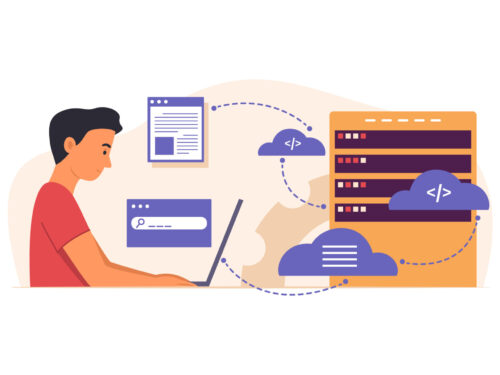Choosing the Right Web Developer for Your Project: A Comprehensive Guide
1. Define Your Project Goals and Scope:
Clearly define the goals and scope of your project before searching for a web developer. Outline the features, functionalities, and overall objectives you want to achieve. This clarity will guide your search for a developer with the right skill set.
Example: If you’re building an e-commerce website, specify features like payment gateways, product catalog, and user accounts. Understanding your project goals helps in identifying developers experienced in e-commerce solutions.
2. Determine Your Budget:
Establish a realistic budget for your web development project. This will narrow down your choices and ensure you’re considering developers who can work within your financial constraints.
Example: If you have a limited budget, consider freelance developers or smaller agencies that may offer cost-effective solutions without compromising on quality.
3. Identify the Right Technology Stack:
Based on your project requirements, choose the appropriate technology stack. Different developers specialize in various technologies, so aligning your project with a developer’s expertise is crucial.
Example: If your project involves creating a dynamic and interactive user interface, you might seek a developer proficient in JavaScript frameworks like React or Vue.js.
4. Evaluate Portfolios and Past Projects:
Review the portfolios and past projects of potential web developers. Look for examples that align with your project’s complexity and requirements. Pay attention to design aesthetics, functionality, and user experience.
Example: A developer who has successfully implemented similar features or functionalities in the past demonstrates their ability to handle your project effectively.
5. Check Client Reviews and Testimonials:
Explore client reviews and testimonials to gauge the satisfaction levels of previous clients. Platforms like Clutch or Upwork can provide insights into the developer’s professionalism, communication skills, and project delivery.
Example: Positive reviews highlighting effective communication, timely deliveries, and overall client satisfaction are indicators of a reliable web developer.
6. Assess Technical Competence:
Conduct technical assessments or interviews to evaluate the developer’s proficiency in the chosen technology stack. Ensure they have a deep understanding of coding standards, security protocols, and best practices.
Example: Request the developer to explain their approach to handling security vulnerabilities or optimizing website performance. A competent developer should showcase a solid understanding of these aspects.
7. Communication and Collaboration:
Effective communication is crucial for a successful collaboration. Choose a developer who communicates clearly, understands your requirements, and is open to feedback. Collaboration tools and methodologies should also be discussed.
Example: A developer who uses project management tools like Jira or Trello and follows an agile development methodology might be well-equipped for efficient communication and collaboration.
8. Scalability and Future Support:
Consider the scalability of the developer’s solutions and inquire about future support. A good web developer will build scalable solutions that can adapt to the growth of your business.
Example: If you plan to expand your website or add new features in the future, ensure the developer can accommodate these changes seamlessly without compromising the existing infrastructure.
9. Legal and Contractual Aspects:
Clarify legal and contractual aspects before finalizing your choice. Discuss terms of payment, project milestones, intellectual property rights, and any other legal considerations.
Example: A transparent and detailed contract ensures that both parties are aligned on expectations, reducing the risk of misunderstandings or disputes later in the project.
10. Utilize Offshore Companies for Developer Recruitment:
Consider leveraging offshore companies to aid in the recruitment process for finding the right web developer. Offshore development agencies often have a pool of skilled professionals and a rigorous hiring process in place. This can save you time and effort in identifying suitable candidates.
Additionally, offshore companies can handle administrative tasks, payroll, and HR functions, allowing you to focus on your project without the burden of managing these aspects. This collaborative approach can lead to a more efficient and cost-effective hiring process.
Conclusion:
Choosing the right web developer is a crucial decision that can significantly impact the success of your project. By following these comprehensive steps and considering the examples provided, you can make an informed decision, ensuring a fruitful collaboration with a developer who aligns with your project goals and requirements.




